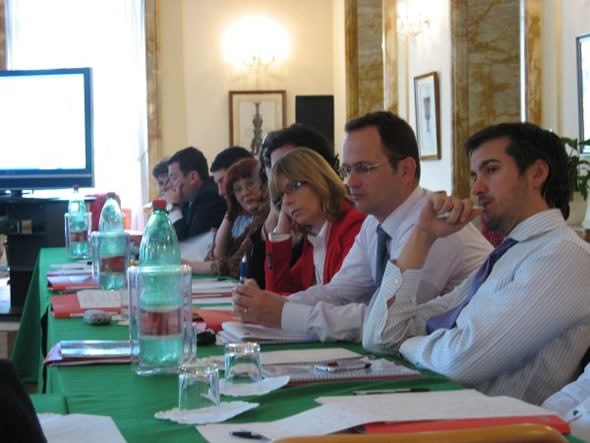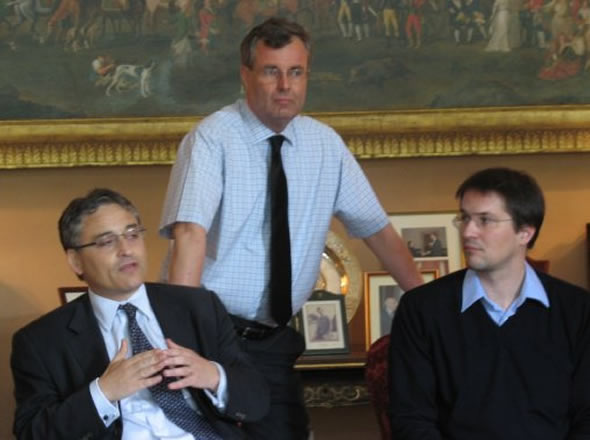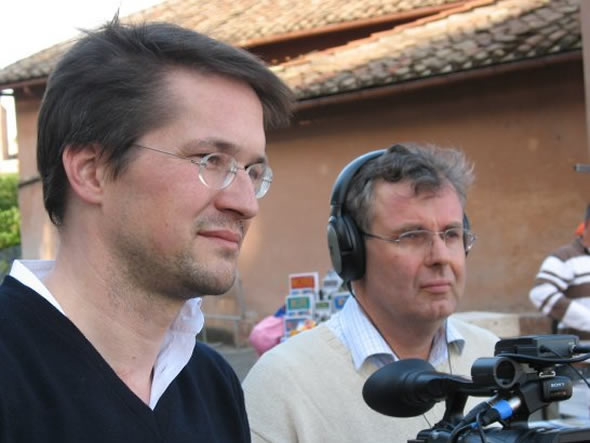ESI conference in Rome - Communicating Europe

Former Italian Prime Minister and outgoing Interior Minister, Giuliano Amato was among the speakers at the concluding event in the first round of ESI's Communicating Europe series held in Rome.
Leading figures from South East Europe working on issues of European integration met in Rome from 21 to 22 May to debate Italian perspectives on further EU enlargement. The participants are senior officials, MPs and journalists from Albania, Bosnia and Herzegovina, Croatia, Montenegro, Serbia, and Macedonia.
This conference series, which is funded by the British Foreign & Commonwealth Office (FCO), was held at the British Ambassador's residence in Rome, Vila Wolonsky. The conference is the final event in an opening series of four; conferences have also been held in Vienna, Berlin and Rome.
Speakers from Italian politics, media and civil society described the Italian debate on the Western Balkans and on the future of enlargement, and examined the thinking of the newly-formed majority Italian Government. The intense public debate on immigration, and the rise of "Italian neo-conservatism" and its potential impact on Italy's foreign policy was outlined by Marta Dassu, of Aspen Institute Italia. She is of the best known international figures from the country's think-tank scene, and a former adviser to the outgoing Government.
The role in the national policy debate of Italy's think-tanks was also addressed by three other leading figures; Roberto Menotti, also from Aspen Institute Italia, and by Ferrucio Pastore from the Centro Studi di Politica Internazionale, and by Ettore Grecco of Istituti Affari Internazionali.
The future of Balkan enlargement was addressed by Guiliano Amato. He also described the debate on visa liberalization from his first hand experience as outgoing Interior Minister.
Italian policy-making toward the Balkans, and the latest thinking ways to engage with the freshly elected pro EU coalition in Serbia, were debated over a working lunch with Maurizio Massari, the Head of Policy Planning in the Italian Foreign Ministry, and former Ambassador to Serbia for the OSCE.
The role of business as a "pathfinder" in the Balkans was outlined by Guiseppe Scognamiliglio, a former diplomat, and now Head of International Affairs for one of Europe's largest banks, the UniCredit group.
The intense debate in Italy on immigration and criminality was analysed by Emanuela del Rey from La Sapienza University.
The British Ambassador to Italy, Edward Chaplin, hosted a working dinner for participants at his Residence. It was also attended by the ambassadors of Albania, Bosnia-Herzegovina, Croatia, Macedonia, and Montenegro.
The Western Balkan participants included;
- Borjan Jovanovski, presenter of Evrozoom, Macedonia's top EU-related TV programme;
- Srdjan Majstorovic, Deputy Director of Serbia's European Integration Office;
- Ksenija Milivojevic, EU Adviser to Serbia's Deputy Prime Minister;
- Aleksandar Pejovic, EU Director from Montenegro's Foreign Ministry;
- Triton Shehiu, ex-Albanian Foreign Minister, Deputy Chair of New Democratic Party;
- Osman Topcagic, Director for European Integration from BiH (Bosnia-Herzegovina);
- Boris Vujcic, Croatia's Deputy Chief Negotiator.


